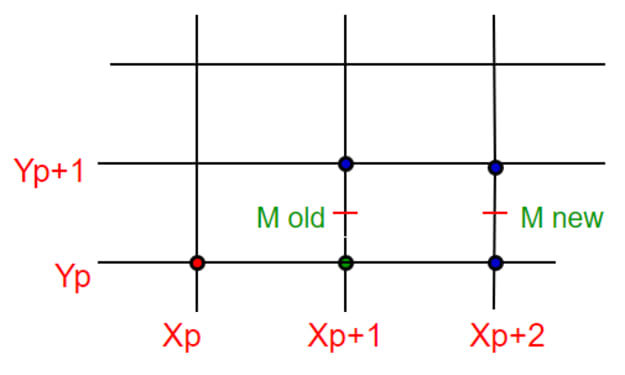A Comprehensive Guide to Becoming a Musician
Discovering The Creativity You Never Knew You Had
Introduction
Embarking on a journey to become a musician is an exciting and fulfilling endeavour. Whether you aspire to play an instrument, produce music, or explore the world of music technology, there are numerous avenues to explore. This comprehensive guide will provide you with in-depth information on how to become a musician, including recommended products from Amazon to support your musical journey.
1: Define Your Musical Goals

Before immersing yourself in the vast world of music, it is crucial to take the time to define your musical goals. This introspective process allows you to gain clarity and set a clear direction for your musical journey. Ask yourself thought-provoking questions to uncover your true aspirations and desires as a musician. Consider the following aspects:
- Musical Identity: Reflect on the kind of musician you want to become. Are you drawn to the idea of performing live on stage, captivating with your musical prowess? Or do you envision yourself as a composer, creating beautiful melodies and harmonies that resonate with others? Perhaps you are intrigued by the art of music production, where you can bring your creative ideas to life through the manipulation of sound. Exploring multiple aspects of music is also a valid path, allowing you to embrace various roles and expand your musical horizons.
- Genre and Style: Consider the genre or style of music that resonates with you the most. Are you passionate about classical music, jazz, rock, pop, electronic, or world music? Understanding your preferred genre(s) will help you focus your efforts and delve deeper into the specific techniques, skills, and knowledge required to excel in that particular musical realm.
- Short-term and Long-term Goals: It is essential to establish both short-term and long-term goals to guide your musical journey effectively. Short-term goals can include learning specific songs, mastering certain techniques, or completing a music theory course. Long-term goals may involve recording and releasing an album, performing at notable venues, or collaborating with renowned musicians. By setting achievable short-term goals that align with your long-term vision, you can maintain motivation and track your progress along the way.
- Personal Growth: Consider how music can contribute to your personal growth and fulfillment. Music has the power to evoke emotions, connect people, and provide a means of self-expression. Reflect on how you want music to impact your life and the lives of others. Whether it's finding solace in composing heartfelt melodies or using music as a platform to convey important messages, understanding the personal significance of music will fuel your passion and drive.
Once you have defined your musical goals, you can begin to chart a path towards achieving them. Your goals will serve as a compass, guiding your decisions regarding the instruments you choose to learn, the skills you prioritize, and the opportunities you pursue. Remember that your goals may evolve and change over time, and that's perfectly normal. Embrace the journey of self-discovery and allow your musical goals to shape your path as you embark on this exciting adventure.
2: Learn an Instrument
Learning to play an instrument is a fundamental and transformative step in your journey as a musician. It opens up a world of possibilities for self-expression, creativity, and personal growth. Whether you choose the guitar, piano, drums, violin, or any other instrument, the process of learning and mastering an instrument requires consistent practice, dedication, and patience.
Investing in a quality instrument that suits your musical preferences and skill level is essential. A well-crafted instrument not only enhances your playing experience but also allows you to produce a more refined and expressive sound. Consider researching different brands, models, and types of instruments to find the one that resonates with you. Whether you opt for a classic acoustic guitar, a versatile digital piano, or a professional-grade drum set, choose an instrument that inspires you to practice and explore its sonic possibilities.
Moreover, don't underestimate the importance of finding a qualified music teacher or mentor who can guide you on your musical journey. A skilled instructor can provide valuable guidance, teach you proper technique, and help you develop a solid foundation in music theory. They can also tailor their lessons to your specific goals and musical interests, ensuring that you progress in a direction that aligns with your aspirations.
Remember, learning an instrument is not just about mastering technical skills. It's about developing a deep connection with your instrument, understanding its nuances, and expressing your emotions through music. Embrace the joy of learning, experiment with different playing styles and genres, and allow yourself to make mistakes along the way. With consistent practice, a quality instrument, and the guidance of a knowledgeable teacher, you will embark on a fulfilling musical journey that will shape you as a musician and bring you closer to realizing your musical dreams. Here are two recommended music instruments from Amazon:
Yamaha P125A Digital Piano
This digital piano offers a realistic playing experience with weighted keys and a wide range of sounds. It is suitable for beginners and intermediate players alike. Additionally, it comes with built-in learning features and connectivity options for further exploration.
Fender Player Telecaster SS Electric Guitar
This iconic electric guitar is known for its versatility and high-quality craftsmanship. It is a great choice for aspiring guitarists looking for a reliable instrument. Its comfortable playability and rich tone make it suitable for various genres.
3: Music Theory and Education

Understanding music theory is a vital component of becoming a well-rounded musician. It serves as the backbone of musical knowledge, providing a solid foundation for composition, improvisation, and effective communication with other musicians. By delving into the world of music theory, you can unlock a deeper understanding of how music works and develop the skills necessary to express yourself creatively. Here are some key points to consider:
- The Importance of Music Theory: Music theory acts as a language that allows musicians to communicate and understand the structure, harmony, and rhythm of music. It provides a framework for analyzing and interpreting musical pieces, enabling you to make informed musical choices and express your ideas more effectively. By studying music theory, you gain a deeper appreciation for the intricacies of music and can apply that knowledge to your own compositions and performances.
- Foundational Concepts: When starting your journey into music theory, it is essential to grasp foundational concepts such as scales, chords, and rhythm. Scales form the basis of melodies and harmonies, while chords provide the harmonic framework for a piece of music. Understanding rhythm allows you to navigate the timing and pulse of a composition. By studying these fundamental elements, you can begin to analyze and deconstruct music, enabling you to recreate and create your own musical ideas.
- Learning Resources: There are various avenues to explore when it comes to learning music theory. Online courses, educational websites, and instructional books are excellent resources to help you grasp the concepts and principles of music theory. Amazon offers a wide range of music theory books, online courses, and instructional DVDs that cater to different learning styles and levels of expertise. These resources provide structured lessons, exercises, and examples to guide you through the intricacies of music theory.
- Practical Application: As you delve into music theory, it is crucial to apply what you learn to your musical practice. Experiment with incorporating new scales, chords, and rhythmic patterns into your playing or compositions. Analyze the music of your favorite artists to understand how they utilize music theory concepts in their work. By actively applying music theory to your musical endeavors, you will develop a deeper understanding of how theory translates into practical musical expression.
Remember that music theory is not meant to stifle creativity but rather to provide a framework for exploration and expression. It is a tool that empowers you to communicate and connect with other musicians, enabling collaborative performances and compositions. Embrace the journey of learning music theory, and let it enhance your musical abilities and open up new possibilities for creative expression.
4: Recording and Production

In today's digital age, music production has become an integral part of the music industry. The ability to produce your own music offers level of creative control and that was once reserved for recording studios. If you are interested producing your own music, investing in recording and production equipment is crucial. Here's a more detailed exploration of this topic:
- The Significance of Music Production: Music production allows you to bring your musical ideas to life, shaping the sound and arrangement of your compositions. It involves capturing and manipulating audio, arranging and layering tracks, applying effects, and mixing and mastering the final product. By taking control of the production process, you can create music that aligns with your artistic vision and showcases your unique style.
- Home Recording Setup: Setting up a home recording studio is more accessible than ever before. With advancements in technology, you can achieve professional-quality recordings from the comfort of your own space. To get started, you will need a few essential pieces of equipment:
a) Audio Interface: An audio interface serves as the bridge between your instruments or microphones and your computer. It converts analog audio signals into digital data that can be recorded and processed. The Focusrite Scarlett 2i2 (3rd Gen) USB Audio Interface is a popular choice, offering high-quality recording and playback capabilities.
Focusrite Scarlett 2i2 3rd Gen USB Audio Interface
b) Microphones: Choosing the right microphone(s) for your recording needs is crucial. Different microphones are designed for specific applications, such as recording vocals, acoustic instruments, or drums. The AKG P220 Vocal Condenser Microphone is a versatile option that delivers clear and detailed sound.
AKG Pro Audio P220 Vocal Condenser Microphone
c) Studio Monitors or Headphones: Accurate monitoring is essential for mixing and mastering your music. Studio monitors or high-quality headphones allow you to hear the nuances of your recordings and make informed decisions about the balance and clarity of your mix. Here is a set of premium studio headphones that would be able to serve you for the majority of your career.
Audio-Technica ATH-M50X Professional Studio Monitor Headphones
d) Digital Audio Workstation (DAW): A DAW is software that enables you to record, edit, and mix your music. There are various options available, such as Ableton Live, Logic Pro, and Pro Tools. Choose a DAW that suits your workflow and offers the features you need to bring your musical ideas to life.
- Learning Music Production: While investing in equipment is important, it is equally crucial to develop your skills in music production. There are numerous online resources, tutorials, and courses available to help you learn the ins and outs of music production. Websites like Udemy, Coursera, and YouTube offer a wealth of educational content to guide you through the process of recording, editing, and mixing your music.
- Collaboration and Distribution: Music production also opens up opportunities for collaboration with other musicians and artists. With the ability to record and share files digitally, you can collaborate with musicians from around the world, exchanging ideas and creating music together. Additionally, digital distribution platforms like SoundCloud, Spotify, and Bandcamp allow you to share your music with a global audience, reaching listeners who appreciate your unique sound.
By investing in recording and production equipment, learning the art of music production, and embracing collaboration and distribution platforms, you can take control of your musical journey and create professional-quality recordings that showcase your talent and creativity. Remember, the process of music production is a continuous learning experience, so don't be afraid to experiment, make mistakes, and refine your skills as you progress.
5: Join a Music Community

Connecting with fellow musicians and joining a music community can provide valuable opportunities for growth and collaboration. Look for local music groups, open mic nights, or online forums where you can share your music, receive feedback, and network with like-minded individuals. Collaborating with other musicians can expand your musical horizons and inspire new ideas
6: Practice and Perform

Consistent practice is the key to honing your musical skills and taking your abilities to new heights. It is through regular and dedicated practice that you can truly refine your technique, expand your repertoire, and develop a deep understanding of your instrument or voice. Here are some additional insights on the importance of consistent practice and how to make the most of your practice sessions:
- Setting Aside Dedicated Practice Time: Establishing a consistent practice routine is essential for progress. Set aside specific blocks of time each day to focus solely on your musical development. By dedicating yourself to regular practice, you create a structured environment that fosters growth and improvement. Treat your practice time as a sacred commitment to your craft, and approach it with focus, discipline, and a growth mindset.
- Challenging Yourself: To continually push your musical boundaries, it's important to challenge yourself during practice sessions. This can involve learning new songs, exploring different techniques, or experimenting with improvisation. By stepping outside of your comfort zone and embracing new challenges, you expand your musical horizons and develop a broader range of skills. Pushing yourself to learn and master new material keeps your practice sessions engaging and helps you progress as a musician.
- Seeking Performance Opportunities: Performing live is a valuable aspect of musical growth. Seek out opportunities to showcase your talent, whether it's at open mic nights, local venues, or virtual platforms. Performing in front of an audience allows you to refine your stage presence, build confidence, and connect with listeners on a deeper level. Each performance provides a unique learning experience, helping you develop resilience, adaptability, and the ability to engage and captivate an audience.
- Recording and Sharing Performances: Recording your performances and sharing them online can be a powerful way to reach a wider audience and receive feedback. Platforms like YouTube, SoundCloud, and social media allow you to share your music with people from all over the world. By recording and reviewing your performances, you can identify areas for improvement, analyse your strengths, and track your progress over time. Sharing your music online also provides an opportunity for collaboration and networking with other musicians and music enthusiasts.
Remember, consistent practice is not just about the quantity of time spent, but also the quality of your practice sessions. Focus on deliberate practice, which involves setting specific goals, breaking down challenging passages, and practicing with intention and focus. Additionally, seek guidance from experienced musicians, teachers, or mentors who can provide valuable feedback and help you refine your technique and musicality. By embracing consistent practice, challenging yourself, seeking performance opportunities, and sharing your music with others, you can accelerate your musical growth and unlock your full potential as a musician. Embrace the journey of continuous improvement, and let your passion and dedication shine through in every note you play or sing.
Conclusion:

In conclusion, music theory and education, combined with recording and production skills, consistent practice, and learning to play an instrument, form the pillars of a well-rounded musician. By delving into music theory, you gain a deeper understanding of how music works, enabling you to communicate and express yourself more effectively. It provides a framework for analysing and interpreting music, empowering you to make informed musical choices and unlock your creative potential.
Recording and production skills allow you to bring your musical ideas to life, shaping the sound and arrangement of your compositions. With advancements in technology, setting up a home recording studio has become more accessible than ever before. By investing in quality equipment and learning the art of music production, you can create professional-quality recordings that showcase your talent and creativity.
Consistent practice is the key to honing your musical skills and taking your abilities to new heights. By setting aside dedicated practice time, challenging yourself, seeking performance opportunities, and sharing your music with others, you can accelerate your musical growth and unlock your full potential as a musician. Embrace the journey of continuous improvement, and let your passion and dedication shine through in every note you play or sing.
Learning to play an instrument is a transformative experience that opens up a world of possibilities for self-expression and personal growth. Whether you choose the guitar, piano, drums, or any other instrument, investing in a quality instrument that suits your musical preferences and skill level is crucial. Find a qualified music teacher or mentor who can guide you on your musical journey, providing valuable instruction and support.
Ultimately, the pursuit of music theory, recording and production skills, consistent practice, and learning to play an instrument is a lifelong journey. It requires dedication, perseverance, and a genuine love for music. Embrace the joy of learning, explore different genres and styles, and allow yourself to be inspired by the rich tapestry of musical expression. As you continue to develop your musical abilities, remember that music is a universal language that has the power to connect people, evoke emotions, and transcend boundaries. Embrace the transformative power of music and let it be a source of joy, inspiration, and personal fulfilment throughout your musical journey.
About the Creator
Alestor
Hoi, I am a student who enjoys writing articles regarding the gear I recommend for various tasks and activities ^-^
Most of my lists of gear could be found on my kit profile here: https://kit.co/Mastet
Enjoyed the story? Support the Creator.
Subscribe for free to receive all their stories in your feed. You could also pledge your support or give them a one-off tip, letting them know you appreciate their work.







Comments
There are no comments for this story
Be the first to respond and start the conversation.